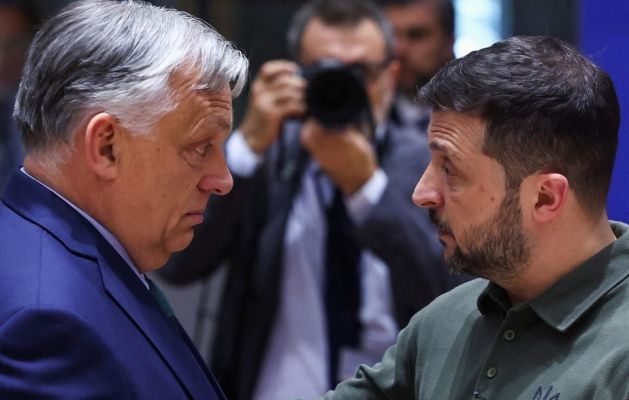
Hungary’s foreign minister Péter Szijjártó has accused Ukraine of violating his country’s sovereignty following Ukrainian strikes on a Russian pipeline supplying crude oil to Hungary.
Unlike most other European Union countries, which reduced their dependence on Russian energy following Moscow’s full-scale invasion of Ukraine in February 2022, Hungary continues to receive most of its crude oil from Russia.
Ukraine launched drone attacks on Russian energy infrastructure last week which resulted in crude oil supplies from Russia to Hungary via the Druzhba pipeline being temporarily halted.
Posting on social media on Sunday – which was Ukraine’s Independence Day – Szijjártó also accused Kyiv of threatening Hungary after Ukrainian President Volodymyr Zelenskyy said his country’s friendship with Budapest “depends on what Hungary’s position is”.
Szijjártó said: “[Zelenskyy] used Ukraine’s national holiday to threaten Hungary. We firmly reject the Ukrainian President’s intimidation.
“We regard sovereignty and territorial integrity as fundamental values of international politics… In recent days Ukraine has carried out serious attacks against our energy supply. An attack on energy security is an attack on sovereignty.”
Szijjártó added: “A war to which Hungary has nothing to do with can never justify violating our sovereignty. We call on [Zelenskyy] to stop threatening Hungary and to end the reckless attacks on our energy security!”
‘Diversify and become independent’
In response, Ukrainian Foreign Minister Andrii Sybiha said: “I will reply in a Hungarian manner. You don’t need to tell the Ukrainian President what to do or say, and when. He is the President of Ukraine, not Hungary.
“Hungary’s energy security is in your own hands. Diversify and become independent from Russia, like the rest of Europe.”
Hungarian Prime Minister Viktor Orbán is one of the few European leaders who have maintained ties with Russian President Vladimir Putin since the start of the war.
The Hungarian leader has also repeatedly blocked or delayed EU aid packages to Ukraine, criticized the bloc’s economic sanctions on Moscow and threatened to use his country’s veto to keep Ukraine out of the EU as long as its entry to the bloc was against Budapest’s interests.
Slovakia weighs in
Slovakia’s Foreign Minister Juraj Blanár also weighed in on Kyiv’s strikes on the Druzhba pipeline and accused Ukraine of “harming its own interests”, saying that Bratislava supplies Ukraine with about 10% of its diesel, the Kyiv Post reported.
“Only a peaceful resolution of the war in Ukraine can stop mutual attacks on energy infrastructure,” the Kyiv Post cited Blanár as saying.
Slovakia, like Hungary, has maintained cordial relations with the Kremlin despite its war in Ukraine and continues to import Russian energy.
Russia and Ukraine have repeatedly attacked each other’s energy infrastructure during the ongoing conflict, with Russia relying on oil and gas sales as its largest source of national revenue.

